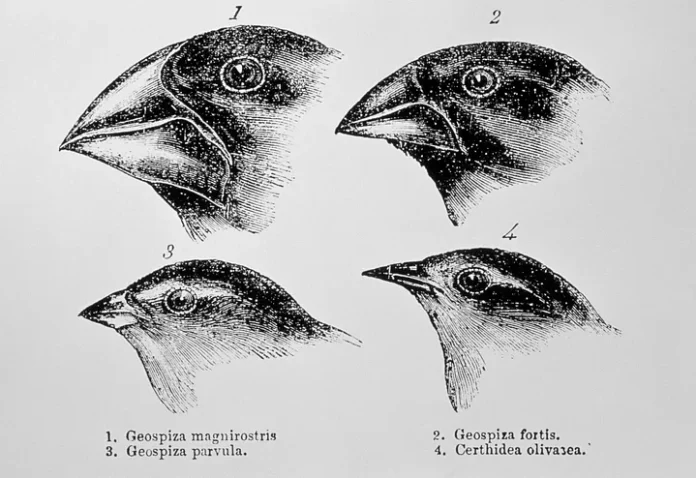Just as two birds on a branch fight for separate territories, we compete for occupancy in the public consciousness. As explained by H. Tajfel and J.C. Turner in their 1979 An integrative theory of intergroup conflictintergroup disagreements and subsequent conflicts arise “when (those) groups compete for the same resource (because) they are perceived as threats to the groups’ status and power.” It is for this reason that conflicts between groups that disagree on this issue occur so often. The mere existence of the opposition itself is an inherent denigration of the effort for ideological survival.
Humans are innately biased, and while the technical and sociological lenses already discussed certainly provide a basis for answering the initial question of data unreliability, our approach to answering is perhaps most strongly rooted in the discipline of psychology. Through a psychological perspective, we can understand that heuristics and innate cognitive biases that arise from our mental conception of the world are determining factors in a population’s mistrust of data, because they are ultimately anything that is not intuitively understood to be true. : The drive to change this ideological paradigm of skepticism is generally an uphill battle against human nature. In their 1974 paper Judgment under uncertainty. Heuristics and biasAmos Tversky and Daniel Kahneman explain that humans “are bound by a limited number of heuristics that reduce the complex tasks of estimating probabilities and predicting values to simpler judgmental operations.” According to them, we are limited by the heuristics or mental shortcuts we use in everyday life; and even if these shortcuts allow us to simplify and make sense of a complex world, they ultimately lead us to flawed and often incorrect conclusions.
This aforementioned “uphill battle” is not just a matter of heuristics and biases, however, as it is certainly multifaceted and influenced by what Tversky and Kahneman called “initial value.” They defined this concept as a mental starting point—a preconceived notion that people then slowly deviate from as new information is introduced. In practice, our estimates “(start from) an initial value that is adjusted to give the final answer. The initial value or starting point may be suggested by the problem statement, or may be the result of a partial calculation.” As Tversky and Kahneman argue, our pre-existing concept of an idea is what ultimately governs our perception of that idea, because even when new information is introduced and adequately processed, we are still agnostic to the original concept, simply deviating from the original. : the value. This starting point, which ultimately serves as a kind of mental anchor, is partly why we so often fall prey to confirmation bias and so often see illusory correlations. If we want something to be true, especially if we perceive the idea correctly, it becomes very difficult to deviate from the original value to such an extent that we can maintain that perception any longer, it is indeed an uphill battle. :
Finally, there is a psycho-evolutionary component integral to the construction of these innate insights: the unconscious. While it is indeed difficult to overcome the biases we are aware of, it is infinitely more difficult to deviate from what exists in the back of our minds. Not only do these seemingly intuitive biases have much lower barriers to operational entry, but they also emerge much more quickly and are harder to prevent. It is naturally easier to use our intuition. and from an evolutionary perspective, it is also much less resource intensive than performing in-depth analysis. As Gerd Gigenreser explains Gut feeling. the intelligence of the unconscious“humans use their instincts, as (they) have evolved over time, to help us … make quick decisions” that ultimately keep us alive because “unconscious processes … are much faster than conscious deliberation.” According to Gigenreser, it is perhaps better to be fast and wrong, at least getting some action, than to be slow and right, but dead. However, when we are not in immediate danger, we are given time to think, and as it relates to understanding quantitative concepts, we should take time to challenge our preconceived notions; we must take time to deviate from what we think we know to be true; and we should aim to be more correct in trying to better understand the world within which we exist. From a psycho-evolutionary perspective, humans are hesitant to draw conclusions and trust data because they are slow to adapt and because the previous means by which they came to conclusions were quite effective; but just because the status quo is good enough doesn’t mean we shouldn’t or can’t strive for something better.
Answering the question of why so many still struggle to trust numbers is ultimately a matter of understanding human nature; It’s a matter of understanding that people cut corners and that we cheat; It is a matter of understanding that we will believe what we want to believe, even if that belief is not true; Above all, however, it is a matter of coming to terms with the fact that despite inventing the computer, despite formulating cures for deadly diseases, and despite pushing the limits of what we know is possible, we are still imperfect creatures. We distrust data not because it is true, not because it will drive progress – in fact it will guarantee quite the opposite – but because we are in constant search for the path of least resistance. We want everything to be easy, because to be easy is to be certain and stable, and humanity is fragile; our existence is subtle.
As it is, there will always be sects of civilization that disagree, and equally there will always be pros and cons as it relates to data perception and analysis. However, bridges must be crossed and minds must be changed. evolution is the engine of survival, and in our quest to preserve our ideologies, we must seek to understand just as we understand ourselves. Maybe we will get closer to the road.


